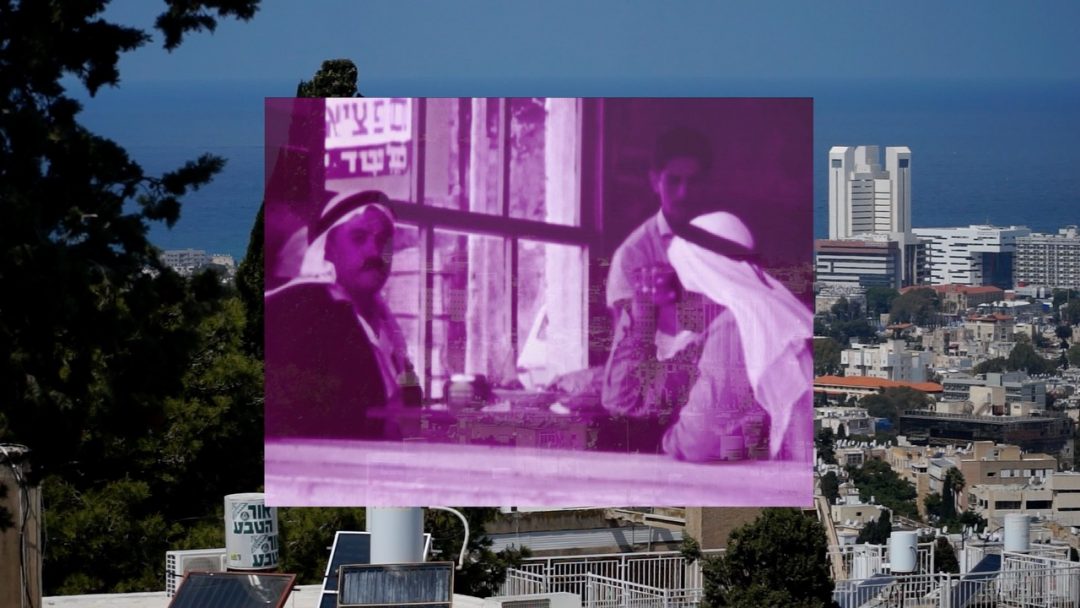
Dir.: Adam Kossoff; Documentary; Israel/UK, 60 min.
Adam Kossoff’s (The Anarchist Rabbi) illuminating essay film about the titular question of homeland versus nation state, researches this topic with references to the building and existence of the State of Israel, using different forms of images to explain the difference between official and personal history. To illustrate his point aesthetically, Kossoff often uses 8- or 16 mm home movies inserted in the middle of the main images.
Whilst watching images of fleeing Palestinians during the Israeli/Arab War of 1948, Kossoff also shows example of Hollywood style movies, showing Israelis as heroes. He references the many Jewish organisations in the diaspora who asked their own governments for financial support for a country they did not want to live in. The saying “Next year in Jerusalem” clouded many a European Jewish childhood in the 1950s and 60s, leaving the younger generation in limbo between their native country, and the mythical Jewish nation of Israel, their parents never intended to join.
Kossoff is very strong on emblematic issues; whilst Israel has declared the olive tree the symbol of the State, it has never the less destroyed over 800 000 Palestinians olive trees since 1967, together with many Palestinian homes in Haifa and Tel Aviv, the owners fleeing to save their lives. The same home are now being sold to Israelis because their former owners do not currently possess the finance required by the Jewish Trust administering the properties. So, when these buildings are sold, it is a final act. Kossoff comments “the nation state is not interested in justice, but self preservation”.
In the “Battle of Jenin” in April 2002, when IDF (Israeli Defence Forces) flattened the refuge camp which existed since this 1948 War, about 50 people were killed, most of them in their own houses. The actually casualty figures is still in dispute, but one of the bulldozer drivers showed no regret, blaming Palestinian “terrorists” for the fighting, and telling gruesome stories about him drinking whiskey to last the three day battle. Official films of the D9, praising this vehicle of destruction for its invulnerability, are gut-wrenching in their bellicose language. In another newsreel excerpt, the commentator points to Arabs reading their own newspapers, commenting “they have newspapers in their own language, even though they are a minority, when they had once been a majority”.
Finally, a reminder that Israel replaced Yiddish, spoken by many of the first wave settlers with a modern version of ancient Hebrew. Criticism came from many writers and Rabbis warning “those who had forced this biblical language on to the people, do not believe in the biblical meaning of it. It might lead to their destruction. This language has been reconstructed to define itself against others”.
Ending on a long shot of an old postcard “Visit Palestine”, over which the credits roll, this essay with texts by Walter Benjamin, Mahmood Darwish, Tanya Reinhart and Susan Sontag ends on a melancholic note. It certainly points to the evils of the Nation State, its only fault is in failing to mention that Israel is not alone in annexing territories and burying the history its citizens. AS
22 April 2018 |THE EAST END FILM FESTIVAL 2018